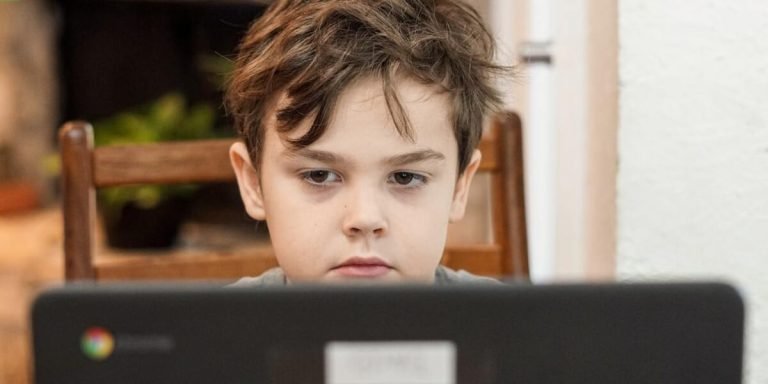Piaget’s Theory of Moral Development: A Comprehensive Understanding for Parents and Educators
Understanding child development is crucial for parents and educators alike, aiding them in molding young minds effectively. One of the essential theories to consider here is “Piaget’s Theory of Moral Development”. This cognitive-developmental approach provides an insightful framework on understanding how children progress morally as they grow up.
The significance this theory holds especially aligns with special education resources and support. It empowers adults to not just teach youngsters about morality, but also comprehend their unique responses towards moral situations—enabling a more tailored educational experience that enriches overall growth.
Did you know?
Did you know? Jean Piaget, the brain behind ‘Piaget’s Theory of Moral Development’, initially began his career as a malacologist – studying mollusks in science. His early work with snails funded his later psychological researches that revolutionized our understanding of child psychology!
Understanding Piaget’s Theory of Moral Development in Special Education
Piaget’s Theory of Moral Development offers critical insights into how children process and understand moral issues. It comes certainly handy when considering the realm of special education, where learners may experience unique challenges in comprehending ethical principles. By understanding Piaget’s stages – from premoral through to autonomous morality development – educators can tailor teaching strategies that cater specifically for these children.
In today’s technologically advanced world, we are gifted with incredible resources to assist us in this task. Technology integration aligns perfectly with Piaget’s theory by offering educational platforms designed for interactive learning fostering a more engaging approach towards ethics teachings. Examples range from digital games requiring teamwork and fairness decisions or virtual classrooms propagating respect among peers despite physical distance — both resonate strongly within the context of moral development.
Special education resources now come laden with technology-support like never before—inclusive apps, responsive websites helping teachers craft lessons suiting students’ individual needs while maintaining their level on the ladder as per Piaget’s discernment scale—this is just scratching the surface! Moreover, peer support forums enable healthy discussions amongst educators themselves about practices that optimize such theoretical application making way for an enriching environment conducive to all-round growth.
Key Stages of Moral Growth According to Piaget
Piaget proposed that children progress through specific stages as their minds mature and they gain new life experiences. These defined phases are pivotal to shaping an individual’s sense of right or wrong – effectively, their moral compass.
1) Heteronomous Morality: Commonly observed in children between 4-7 years old, this phase corresponds to early childhood when rules seem fixed and unalterable — largely because externally imposed by power figures like parents or teachers. For such young minds navigating a complex world, it simplifies matters knowing what needs to be adhered to precisely without negotiation.
2) Transition Period: Around age 7-10, kids begin transitioning towards autonomous morality but still retain aspects from the previous level. They develop social relationships allowing more diverse perspectives on morals leading gradually towards critical thinking about ‘fixed’ laws preset for them earlier.
3) Autonomous Morality: By approximately ages 11–12 onward into adulthood individuals enter this third stage where they recognize rules can dynamically change based on context & consensus among those involved rather than set stone edicts issued authoritatively.
Implications for Tailoring Special Education Curricula
In understanding Piaget’s theory of moral development, we should ask – how can this be applied to tailor special education curricula? The theory emphasizes the idea that children learn through active discovery. This insight highlights the need for a curriculum designed to cater specifically to the individual needs and learning abilities of students with particular requirements.
Technology must play a crucial role to effectively integrate Piaget’s principles in special education settings. Here’s how it could work:
With advancements in ed-tech tools like interactive whiteboards or touchscreen devices, educators can foster an environment where students independently explore different tasks. It aligns directly with Piaget’s postulates about self-driven exploration and discovery being fundamental characteristics of child growth.
One aspect emphasized by piaget’s theory of moral development is hands-on-experience as essential for kids’ comprehension enhancement. In light thereof, integrating games into teaching will not only enhance interactivity but also facilitate better grasping power among learners regarding various concepts.
Piaget believed that children often understand their world best through stories and narratives—digital storytelling platforms tap right into this notion providing visual aids reinforcing thought processes during early formative years thus aiding cognitive advancement immensely.
Incorporating Piagetian Principles into Special Needs Teaching Strategies
In the realm of special education, integrating Piagetian principles into teaching strategies opens a new avenue for fostering moral development among students. Jean Piaget’s theory of moral development serves as a beacon that illuminates our understanding about how children construct and comprehend their unique perceptions around morality from an early age. Teachers, particularly those who are involved with special needs individuals, can leverage this insightful framework to craft more effective lessons.
Applying these principles necessitates acknowledging each child’s cognitive ability and developmental stage according to Piaget’s model. This includes working within the bounds of concrete operations or formal operations stages depending on where they fall in their individual growth chart. Utilizing technology designed specifically for educational purposes can further facilitate this adaptation process by providing personalized learning experiences tailored explicitly for children dealing with intellectual disabilities.
For instance, interactive applications act as excellent tools that simulate real-world scenarios where learners have to make decisions based on ethical dilemmas thus encouraging them to think critically about right and wrong actions in relation Joanne-based conflicts – one significant aspect focussed upon by Piaget’s theory itself.
Furthermore, online platforms loaded with resources catered towards enhancing cognition such as puzzles related to cause-and-effect relationships not only embeds concepts through play but also cultivates reasoning skills amongst young minds which falls under another key facet highlighted by the said theory.
Developing Age-Appropriate Morality Lessons for Different Learning Abilities
Incorporating the principles of Piaget’s theory of moral development into special needs teaching strategies can prove beneficial in crafting age-appropriate morality lessons for children with different learning abilities.
Firstly, understanding that every child has a unique mental and cognitive growth pattern is essential. According to Jean Piaget’s developmental theory, children progress through distinct stages: sensory-motor, pre-operational thoughts, concrete operations and formal operations. Each stage presents an opportunity to impart ethical principles suited to their cognitive ability.
When it comes to technology integration in education for 2023, tools such as interactive games or applications designed around these stages can be implemented. These platforms present scenarios where decision-making skills are tested; each choice having a ‘moral’ attached helps students comprehend the consequences better.
For instance, during the preoperational thought phase (ages 2-7), children begin perceiving right from wrong but struggle with logical thinking. Interactive storytelling apps could cater stories where characters face moral dilemmas fitting this abstract level – subtly instructing about honesty or kindness perhaps?
Finally at formal operation stage (above12) , when abstract reasoning develops fully – online debates concerning current socio-political issues allow them stronger perspectives on values like democracy or freedom ensuring strong morally conscious adults emerge out eventually .
Using Real-Life Scenarios to Enhance Moral Reasoning Among Special Education Students
As educators, one of the most effective ways we can apply Piaget’s theory of moral development in special education is by using real-life scenarios to enhance moral reasoning among our students. This approach involves relating lesson themes and concepts with practical examples from everyday life experiences that are both relatable and meaningful for these learners.
A significant aspect of Jean Piaget’s cognitive developmental theory dwells on how children develop their sense of morality over time. According to him, kids transition through heteronomous morality (rules viewed as fixed and unchangeable) towards autonomous morality (where rules become flexible). In this context, incorporating such principles becomes critical while strategizing teaching methods for special needs children who often need additional support grasping abstract concepts.
In applying real-world situations within an educational framework, teachers foster a learning environment where students draw connections between classroom lessons about respect or honesty into true-life instances like sharing toys or apologizing when they have wronged someone else. These direct correlations help simplify complex ideologies surrounding piaget’s theory of moral development making it easier for all individuals involved – teacher & student alike- understand better.
Assessing and Supporting Moral Progress in a Special Education Setting
Piaget’s theory of moral development, a cornerstone in the field of childhood education, is crucial to understanding and supporting student growth within special education settings. This model provides educators with a blueprint for detecting and addressing individual learning needs, focusing on students’ capacity to differentiate right from wrong – an aspect directly related to their intellectual maturity.
Incorporating this framework into classroom instruction isn’t just about teaching morality—it also contributes significantly towards personal self-awareness among these unique learners. Educators equipped with Piaget’s developmental insight can design lessons that not only maintain academic rigors but foster ethical decision-making as well.
Applying technology smartly becomes critical within such contexts because it greatly augments traditional techniques used in special education pedagogy. In 2023 we have seen phenomenal strides in educational technologies designed for specialized classrooms—tools which effectively bridge standard curriculum objectives and the specific cognitive requirements posed by each learner’s unique situation—thus further enhancing moral development per Piaget’s outline.
But utilisation must always be thoughtful; be cautioned against deploying tech solutions simply as a means of keeping pace with emerging trends or conforming to peer pressure amongst teaching professionals. An intimate knowledge base relating your students’ abilities along with considerable foresight linking how precisely will they benefit from particular technological resources are prerequisites before integration occurs.
Tools and Techniques for Monitoring Ethical Development
When it comes to monitoring ethical development in children, particularly those within a special education setting, educators and parents can apply Piaget’s theory of moral development. This concept provides vital guidance on how moral reasoning evolves over different stages in childhood.
Firstly, there is an indispensable role for technology integration in this process. Technology today offers innovative tools that are not just engaging but also allow interactive learning experiences tailored for each child’s unique needs.
One such tool is digital behavior tracking apps. These apps facilitate the observation of students’ behavioral changes as they interact with various scenarios or stimuli inside or outside the classroom environment — providing quantifiable data that could be used to understand their ethical growth patterns better.
Moreover, virtual reality (VR) has emerged as another transformative force within special education resources and support around morality teachings. VR technologies give learners exposure to diverse situations where they need to make decisions based upon their understanding of right vs wrong – thus contributing towards enriching their sense-making abilities at crucial junctures during lessons about ethics and morality.
In addition, online assessment platforms offer personalized quizzes aligning with Piaget’s phases; these help measure comprehension around issues like ‘rule following,’ ‘fairness,’ etc., critical components forming part of any morals curriculum under his framework.
Creating an Inclusive Environment That Fosters Morality}’”,
Creating an inclusive environment that fosters morality is essential for every education system, but it holds even more significance in a special education setting. When we delve into Piaget’s theory of moral development, we realize the profound role played by social interactions and mental growth stages on children’s understanding of right from wrong.
Special education introduces specific challenges to foster morale due to distinctive learning needs and styles. By integrating technology with tailored resources and supports, educators can successfully navigate these obstacles while enhancing ethical cognition among students.
One effective way to create this conducive environment is through online discussion forums specifically designed for special-needs learners. These digital platforms provide safe spaces where they can discuss moral dilemmas related to everyday life situations or selected storybooks. Facilitated by teachers who guide conversations based on Piaget’s developmental model phases (heteronymous morality stage followed by autonomous morality), such activities promote principled thinking as well as empathy-enhancing discussions.
Conclusion
So there it is: Piaget’s theory of moral development in a digestible form. This model, with its attention to stages and the relationship between cognitive development and moral reasoning, offers significant insights for parents and educators alike. Understanding this framework not only helps you better comprehend your child’s developmental leaps but also equips you to offer more precise guidance at each phase.
Remember that child education isn’t one size fits all; individual variations are always present. Yet armed with such valuable knowledge-base like understanding Piaget’s Theory can make navigating through their unique path smoother than otherwise possible! So don’t chase answers elsewhere when our website is brimming full of enriching content on educating children along with an abundance of support for both parents and educators by covering every facet related to childhood education needs – waiting just behind your next click!







